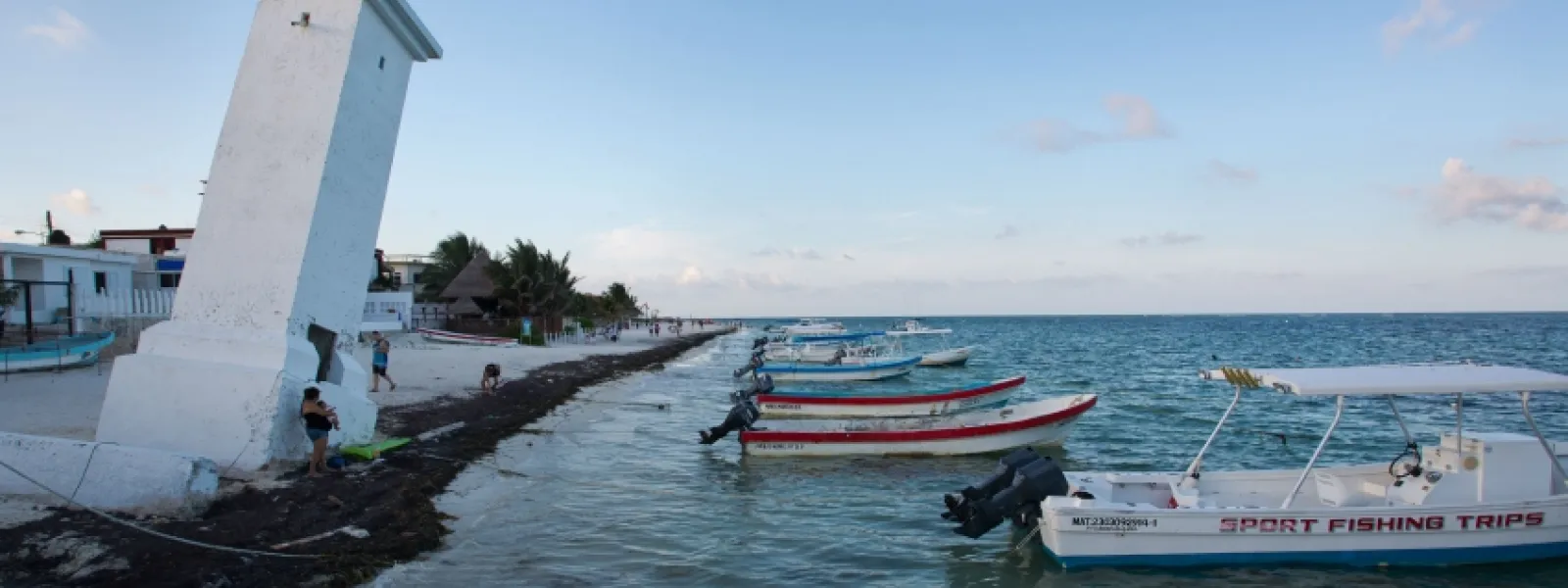
Organizations alert authorities of threats to Puerto Morelos Reef
Didrik Johnck / FlickrMexico’s Puerto Morelos Reef National Park, a national protected area and Wetland of International Importance, is at risk due to massive and unsustainable tourism activities. Civil society organizations solicited a visit of international experts from the Ramsar Convention to evaluate the risks facing the site.
A coalition of local, national and international organizations presented an urgent alert before the Ramsar Convention, an intergovernmental treaty on wetlands, warning of the threats facing Mexico’s Puerto Morelos Reef National Park due to massive and unsustainable tourism. The Interamerican Association for Environmental Defense (AIDA)—with the support of the Mexican Center for Environmental Law (CEMDA), Voces Unidas for Puerto Morelos, the Puerto Morelos House of Culture, Flora and Fauna of Mexico, and the Center for Innovation and Investigation for Sustainable Development— solicited a visit of international experts to evaluate the risks.
"Because some of the area’s tourism projects were not subjected to a rigorous environmental impact assessment, they have transformed the coastal territory, degrading and contaminating ecosystems, particularly coral reefs and mangroves," explained Sandra Moguel, regional director of CEMDA’s Southeast office.
The National Park was created as a natural protected area in 1998 and was registered in 2004 as a Wetland of International Importance under the Ramsar Convention. It is a unique site due to its high biodiversity—its coral reefs provide habitat for fish, sharks, pink snails and sea turtles, while its mangroves harbor crocodiles and herons. In addition, like other wetlands, it helps prevent coastal erosion and provides breeding and feeding grounds for the area’s fish.
"The site’s ecological and scenic beauty attracts tourism projects which, because they’re not properly evaluated, promote the irrational use of natural resources," said Camilo Thompson, AIDA marine attorney. "A Ramsar mission is urgently needed to evaluate the damages, propose compensation, issue recommendations on the growth of tourism and real estate, and identify alternatives to ensure the rational use of the park’s ecosystems."
The Puerto Morelos Reef forms part of the Mesoamerican Reef System, considered the second largest barrier reef in the world.
"Any activity carried out in the reef requires a strategic environmental assessment that considers the cumulative and synergistic impacts on the coastal wetlands, sea grasses and reefs of Puerto Morelos," Thompson added. "The Mexican State must apply the precautionary principal and ecosystem approach to confront the threats to the biodiversity of this unique site."
Download the alert presented before the Ramsar Convention (in Spanish).
Press Contacts:
Camilo Thompson, AIDA Attorney, +521 9671302346, [email protected]
Ricardo Ruiz, CEMDA, + 55 5211 2457, [email protected]
